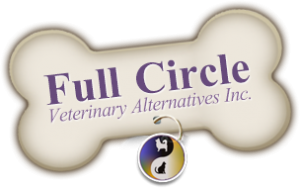WE ARE CLOSED!
As of Friday, December 23, 2022, Full Circle Veterinary Alternatives is now closed.
While this chapter has come to an end, we are grateful for the opportunity to have been a part of your pet’s journey. We wish you and your furry companions all the best in your continued pet care endeavors.
For any pending inquiries, medical records, or further assistance, please feel free to reach out to :
Petworks Veterinary Hospital
850 Portland Street
Dartmouth, NS B2W 2N3
902.435.2444
